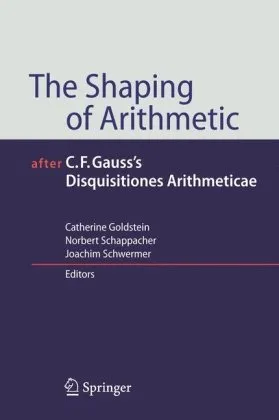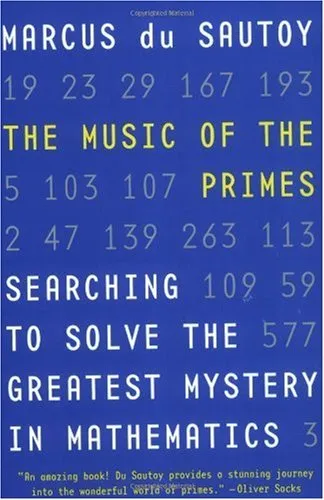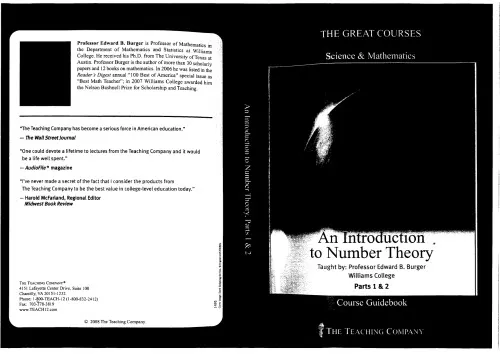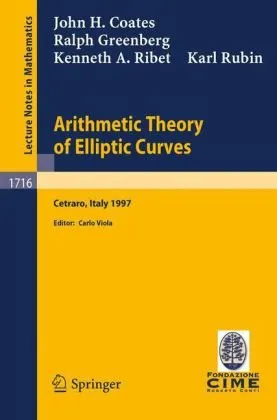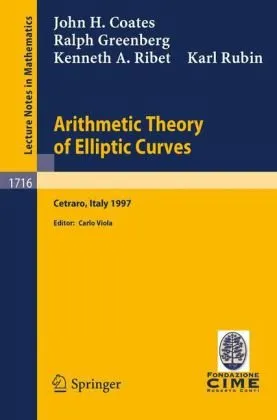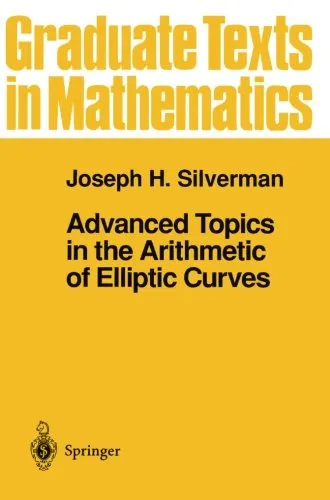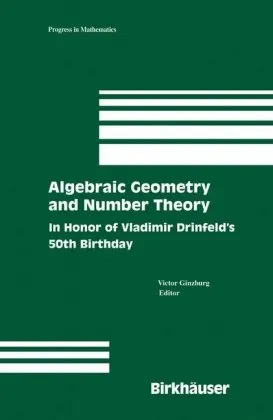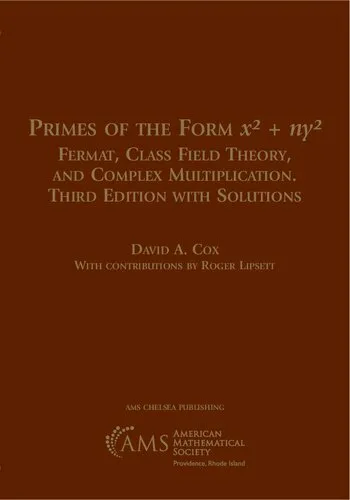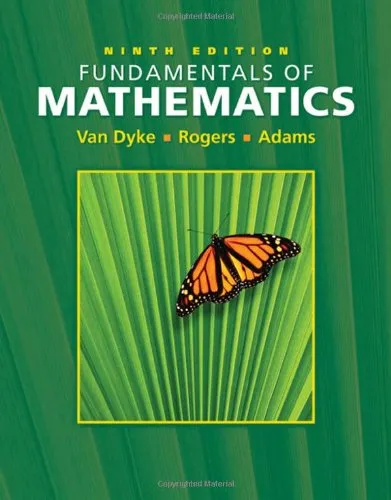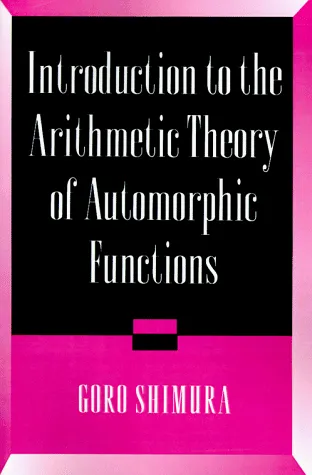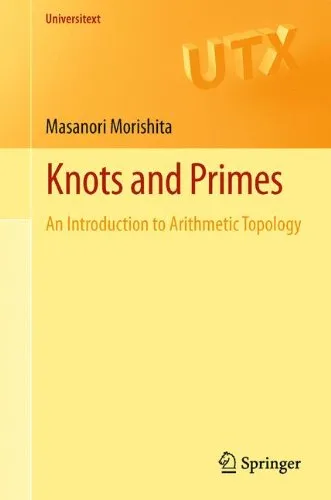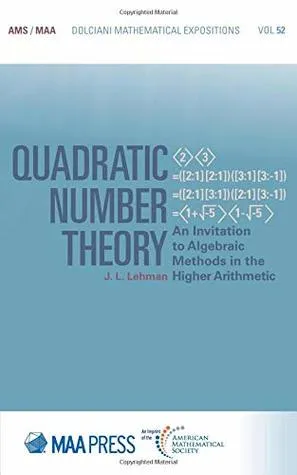Shaping of Arithmetic after C. F. Gauss's Disquisitiones Arithmeticae
4.0
بر اساس نظر کاربران

شما میتونید سوالاتتون در باره کتاب رو از هوش مصنوعیش بعد از ورود بپرسید
هر دانلود یا پرسش از هوش مصنوعی 2 امتیاز لازم دارد، برای بدست آوردن امتیاز رایگان، به صفحه ی راهنمای امتیازات سر بزنید و یک سری کار ارزشمند انجام بدینکتاب های مرتبط:
معرفی کتاب Shaping of Arithmetic after C. F. Gauss's Disquisitiones Arithmeticae
کتاب Shaping of Arithmetic after C. F. Gauss's Disquisitiones Arithmeticae اثری ارزشمند در تاریخ و فلسفه ریاضیات است که به بررسی تأثیرات عمیق و رویکردهای نوآورانهای میپردازد که کار بزرگ "گائوس" در Disquisitiones Arithmeticae بر ریاضیات، مخصوصاً نظریه اعداد، گذاشته است. این کتاب با دیدی چندجانبه و تاریخی-تحلیلی، تکامل و توسعه مباحث مطرحشده توسط گائوس را شرح میدهد و نشان میدهد که چگونه این ایدهها به شکلدهی جامعه ریاضی معاصر کمک کردهاند.
خلاصه کتاب
کتاب شامل مقالاتی جامع است که توسط نویسندگان برجسته نگاشته شدهاند و هر یک جنبهای از تأثیر Disquisitiones را بر تاریخ ریاضیات بررسی میکنند. محوریت این کتاب بر تحول نظریه اعداد طی قرون نوزدهم و بیستم میلادی است. از ارائه ساختارهای جدید جبری گرفته تا ابزارهای دقیق آنالیز عددی، تمامی این پیشرفتها مستلزم تأثیر مستقیم یا غیرمستقیم آثار گائوس بودهاند.
موضوعات اصلی مطرحشده در این کتاب شامل بنیانهای نظریه گروهها، چشماندازهای جدید در نظریه میدانها، توسعه چندجملهایهای ویژه، و کاربردهای ریاضیات در سایر شاخهها از جمله جبر و هندسه است. این کتاب غنی از تحلیلهای فلسفی و تاریخی بوده و به علاقهمندان علم ریاضیات توصیه میشود.
نکات کلیدی کتاب
- توسعه روشهای ریاضی مدرن با تأثیر مستقیم از آثار گائوس.
- تحلیل مرتبط با ساختارهای جبری و کارکردهای آنها.
- بررسی تاریخی تحولات در نظریه اعداد.
- تشریح ارتباط میان ریاضیات خالص و کاربردی در حوزههای مختلف.
- روششناسی درک پیشرفتهای علمی از دیدگاه تاریخ علم.
جملات مشهور از کتاب
"The work of Carl Friedrich Gauss is not merely a mathematical monument; it is the cornerstone upon which the very foundation of modern arithmetic rests."
"To understand how mathematics evolved after Disquisitiones, one must trace not only its abstractions but also its applications and influence."
چرا این کتاب اهمیت دارد؟
اهمیت این کتاب در تحلیل عمیق و گستردهای نهفته است که از میراث ریاضی گائوس ارائه میدهد. Shaping of Arithmetic after Disquisitiones به ریاضیدانان، مورخان علم و حتی علاقهمندان فلسفه ریاضی کمک میکند تا به درک عمیقتری از تأثیر ساختارهای بنیادی در نظریه اعداد برسند. این کتاب همچنین پلی میان دنیای تاریخی ریاضیات و رویکردهای مدرن ایجاد میکند.
از آنجا که نظریه اعداد و دستاوردهای گائوس اساس بسیاری از شاخههای دیگر علم ریاضی قرار گرفته، این اثر فرصتی برای داوری و تأمل در تحولاتی است که جهان علمی به واسطه آن تجربه کرده است. این کتاب بهعنوان مرجعی علمی و تاریخی میتواند الهامبخش پژوهشهای جدید و عمیقتر در سایر شاخههای ریاضیات باشد.
Introduction
In the rich and evolving history of mathematical thought, Carl Friedrich Gauss's foundational work, Disquisitiones Arithmeticae, stands as a keystone in the development of number theory. First published in 1801, this monumental text not only established completely new directions in arithmetic but also inspired generations of mathematicians to explore, refine, and expand upon its groundbreaking ideas. The Shaping of Arithmetic after C. F. Gauss’s Disquisitiones Arithmeticae delves into this profound legacy, examining how the themes, methodologies, and innovations introduced by Gauss influenced the evolution of mathematics through the 19th and 20th centuries.
Written by Catherine Goldstein, Norbert Schappacher, and Joachim Schwermer, this book offers a deep, interdisciplinary exploration of how Gauss's work was interpreted, expanded upon, and utilized in academic communities worldwide. It bridges the gap between historical analysis and mathematical development, making it an essential read for anyone interested in the intersection of mathematical theory and cultural context. The structure of this work ensures that readers can navigate topics such as modular arithmetic, quadratic reciprocity, and the role of rigor in shaping mathematical discourse, all through the lens of history and innovation.
Detailed Summary of the Book
The book is divided into several chapters, each dedicated to exploring specific advancements in arithmetic that arose after Gauss's seminal publication. It presents comprehensive discussions of how the themes of the Disquisitiones were interpreted by contemporary and successive mathematicians, while also analyzing the social and intellectual contexts that shaped those interpretations.
Beginning with an overview of Gauss's original contributions, the authors uncover how central concepts like the law of quadratic reciprocity were elevated and extended. The book traces the development of topics such as modular arithmetic, algebraic number fields, and generalizations of primes, illuminating how mathematicians such as Ernst Eduard Kummer, Richard Dedekind, and David Hilbert carried forward Gauss’s legacy. Furthermore, it delves into how these advancements gave rise to new subfields, such as algebraic topology and modern algebra, linking them back to Gauss's original work.
A key theme of the book is the dynamic interaction between abstract mathematical ideas and the practical needs of the societies in which they developed. By investigating the institutional frameworks, letters, publications, and collaborations of the time, the authors frame the progress of post-Gaussian arithmetic in its proper historical and cultural context.
Key Takeaways
- The Disquisitiones Arithmeticae was not merely a summation of known results but a methodological shift that redefined the rigor and language of mathematics.
- Gauss’s pioneering insights into modular forms, quadratic residues, and congruences provided the foundation for virtually all modern number theory.
- The interpretation and extension of Gauss's work, particularly by figures like Dedekind and Kronecker, were not only mathematical but also shaped by their respective cultural and philosophical milieus.
- Modern computational techniques in number theory can trace their philosophical underpinnings and technical methodologies back to Gauss’s innovations.
Famous Quotes from the Book
The authors skillfully punctuate their text with insightful commentary, bringing to light the timeless wisdom of mathematicians inspired by Gauss. Here are a few impactful quotes from the book:
"Gauss required that arithmetic stand on the firm ground of reason and precision, a standard that has shaped mathematics ever since."
"The legacy of the Disquisitiones is not merely in the theorems it established but in the spirit of inquiry it fostered in the generations that followed."
"To understand the history of arithmetic is to grasp the evolution of how humanity comprehends the infinite."
Why This Book Matters
The significance of The Shaping of Arithmetic after C. F. Gauss’s Disquisitiones Arithmeticae lies in its ability to connect the past with the present. For modern mathematicians, this book provides an indispensable roadmap to understanding the origins of many foundational concepts in arithmetic. For historians and philosophers of mathematics, it offers a rich narrative that weaves together the cultural, intellectual, and technical fabrics of mathematical thought.
Beyond its academic importance, the book challenges readers to think critically about how mathematical knowledge is constructed and transmitted. It shows that great works like Gauss’s Disquisitiones are not isolated achievements but part of a continuous dialogue across centuries. As mathematics continues to evolve, reflecting new technologies and discoveries, the reflections presented in this book remain as relevant as ever.
Ultimately, this book shines a light on the timeless nature of mathematics, illustrating how ideas that originated in the 19th century continue to resonate in today’s academic and practical pursuits. It is a testament to the enduring power of human ingenuity and intellectual curiosity.
دانلود رایگان مستقیم
شما میتونید سوالاتتون در باره کتاب رو از هوش مصنوعیش بعد از ورود بپرسید
دسترسی به کتابها از طریق پلتفرمهای قانونی و کتابخانههای عمومی نه تنها از حقوق نویسندگان و ناشران حمایت میکند، بلکه به پایداری فرهنگ کتابخوانی نیز کمک میرساند. پیش از دانلود، لحظهای به بررسی این گزینهها فکر کنید.
این کتاب رو در پلتفرم های دیگه ببینید
WorldCat به شما کمک میکنه تا کتاب ها رو در کتابخانه های سراسر دنیا پیدا کنید
امتیازها، نظرات تخصصی و صحبت ها درباره کتاب را در Goodreads ببینید
کتابهای کمیاب یا دست دوم را در AbeBooks پیدا کنید و بخرید
1401
بازدید4.0
امتیاز0
نظر98%
رضایتنظرات:
4.0
بر اساس 0 نظر کاربران
Questions & Answers
Ask questions about this book or help others by answering
No questions yet. Be the first to ask!
